23/11/2015 | Writer: Hakan Özkan
The second day of International Conference on Social Inclusion ended with the Globalizing Human Rights for LGBTI People session. The participants from abroad shared their experiences in their countries.

The second day of International Conference on Social Inclusion ended with the Globalizing Human Rights for LGBTI People session. The participants from abroad shared their experiences in their countries.
The session started with the video message of Vice President of the European Parliament, Ulrike Lunacek. Lunacek addressed the conference participants with “I wish for an environment in which exlusion doesn’t exist. Together, we can succeed” message. Lunacek noted the following:
“We must make more efforts for LGBTI’s to earn respect”
“I salute you all. I’m in a mixed group the parliament for LGBTI rights mostly composed of heterosexual persons. Congratulations for this conference. Turkey is passing through a period which includes too much violence. It’s difficult to gather national, local EU and UN. We saw that the ruling party came to power again upon the general elections. Therefore, we must make more efforts for LGBTI’s to earn respect. I remember the explosion that took place three weeks before; over one hundred people lose their lives. Furthermore, the opposing media is facing oppressions.
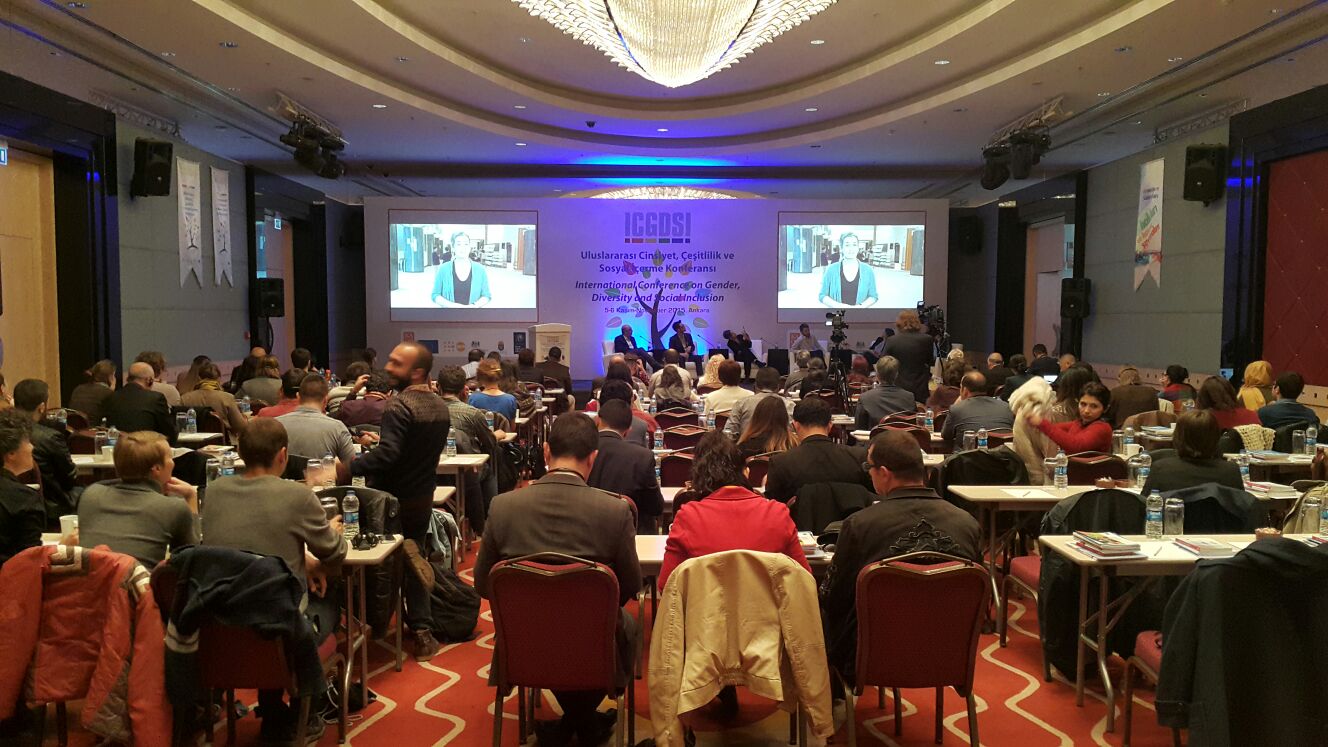
“It became more difficult to question heteronormativity of the societies. All these events end with impunities. Rather than being seen as a threat, diversity should be seen as a value; social inclusion is the most important instruments in our hands.
How can we influence Iran society?
The session which was directed by ILGA Europe Programmes Director Bjorn van Roozendaal started with the speech of IGLHRC Iran Project Manager Frid Haerinejad. He emphasized the works they have been conducting to influence Iran society.
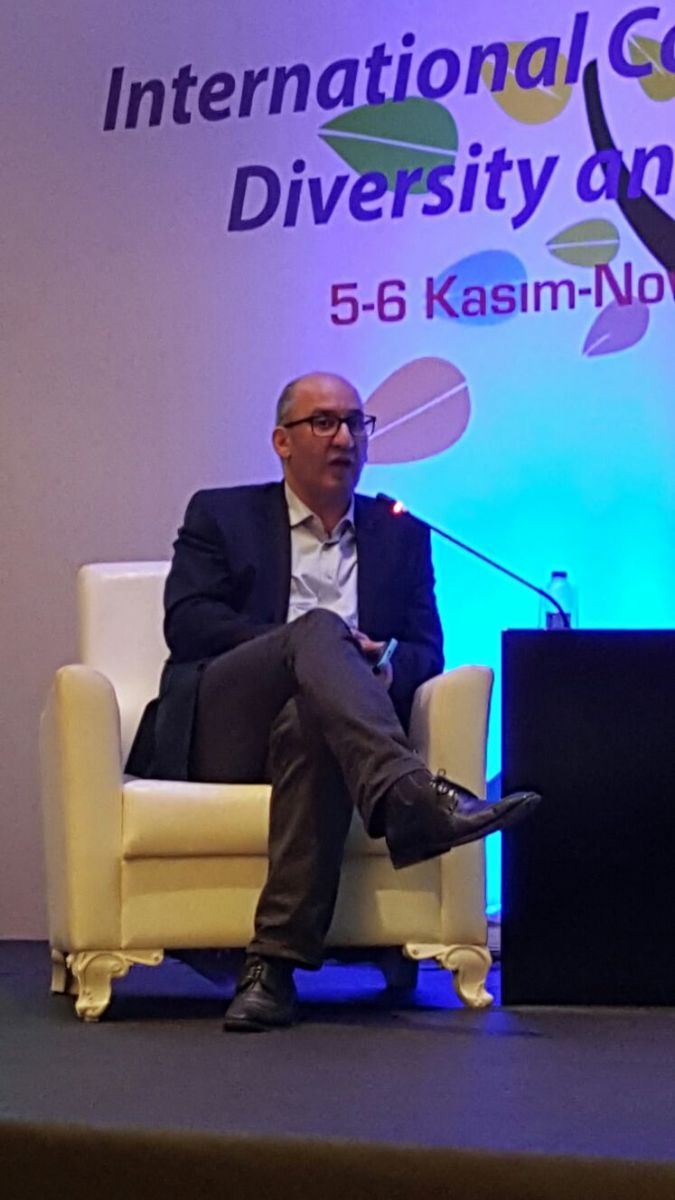
“Our organization is a New York centered organization. I have been in this organization for 4 years since Iran Program has started. We are cooperating with United Nations group in order for the LGBTI issues not to remain among LGBTI’s but become mainstream issues. We give “how to make correct news” regarding LGBTI issues trainings to media. Apart from that, we are trying to influence Iran society. When there’s no progressive government, media and civil society have a significant role. If we can’t strengthen the civil society, if we can’t strengthen the media, we can’t get too far. We are trying to raise awareness of at least the houses of the families living in Iran which include LGBTI members.”
“Regarding Iran, there is no secular law in Iran. Sharia laws are the governing laws. We fight for Sharia Law not to be interpreted in such a way. There are a couple of references to the people of Lut in Torah and but we can challenge this interpretation. We know the punishments will end if we change that interpretation. We are trying to mainstream this struggle.”
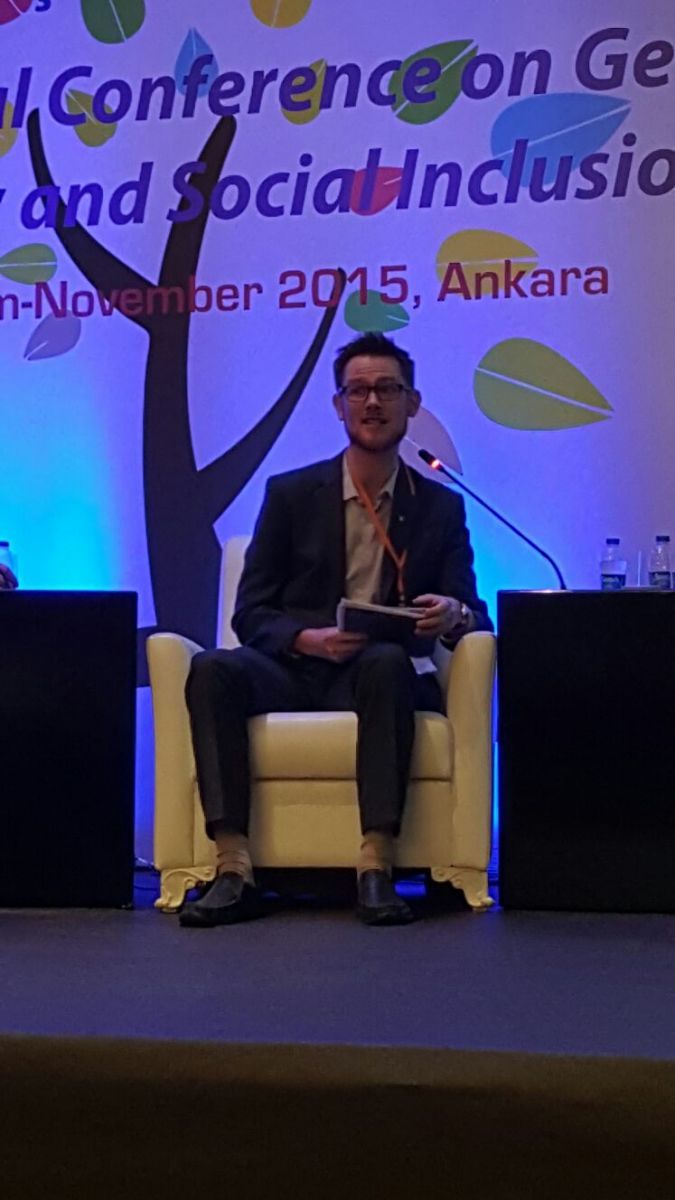
“Sustainable works should be conducted”
Afterwards, International Policy Officer of Stonewall Organization, Kit Dorey began to speak. Dorey summarized the works of Stonewall as follows:
“As Stonewall, we were founded in order to keep a close watch on regulations about LGBTI all across England. We have a holistic approach, we practice in various fields synchronously. LGBT organizations should take parts in areas which support each other. As Stonewall, we couldn’t be this much successful if we haven’t practiced in areas which support each other.”
During his speech, Kit Dorey emphasized the fact that the methods of the works should be strategic with “Sometimes, you draw the same amount of attention if you look like you’re supporting LGBTI rights, the point you need to support is the sustainability point” sentence.
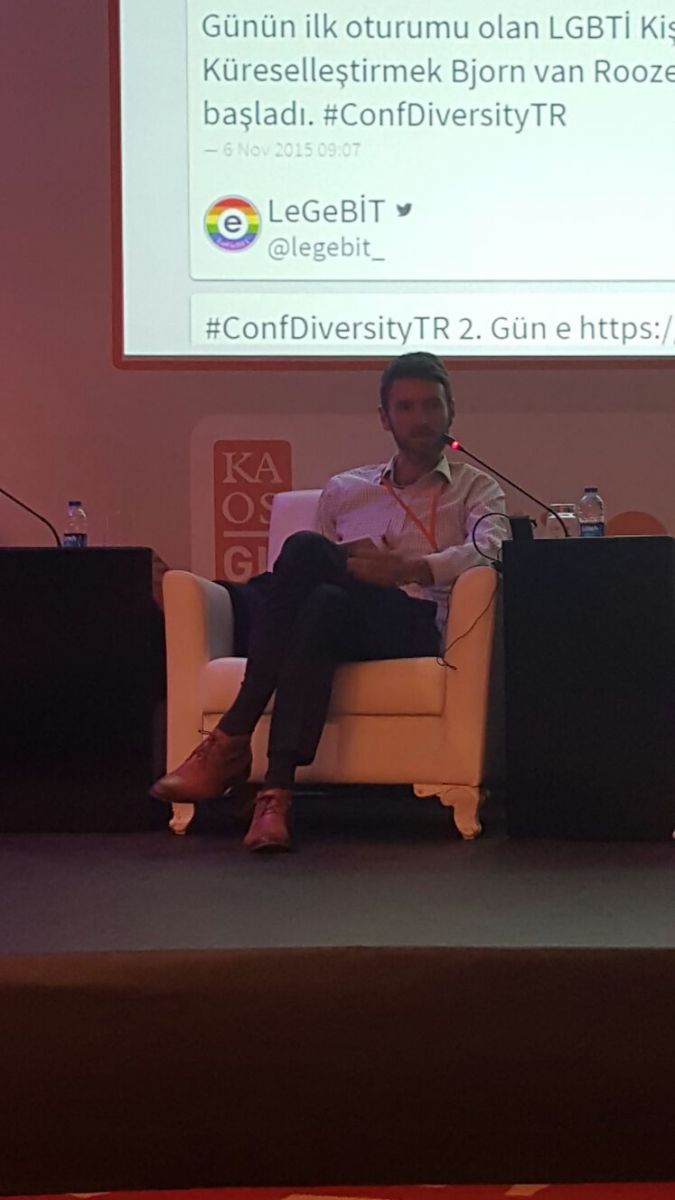
“The state should benefit from the civil society experiences”
Senior Officer for Eurasia Program of Freedom House, Matthew Schaaf also spoke during the session. Schaaf said:
“I want to talk about our approaches. We work in analysis studies and program applications area. I know that particularly our reports we have issued in media field are circulating in Turkey. We try to determine the situation particularly for the NGO’s. we are trying to determine the strength of civil society on the road the Turkish society goes. Civil society should be seen as a partner of the government regarding an issue that concerns the society. This is our purpose. In this regard, public bodies should benefit from the experiences of Non-Governmental Organizations.”
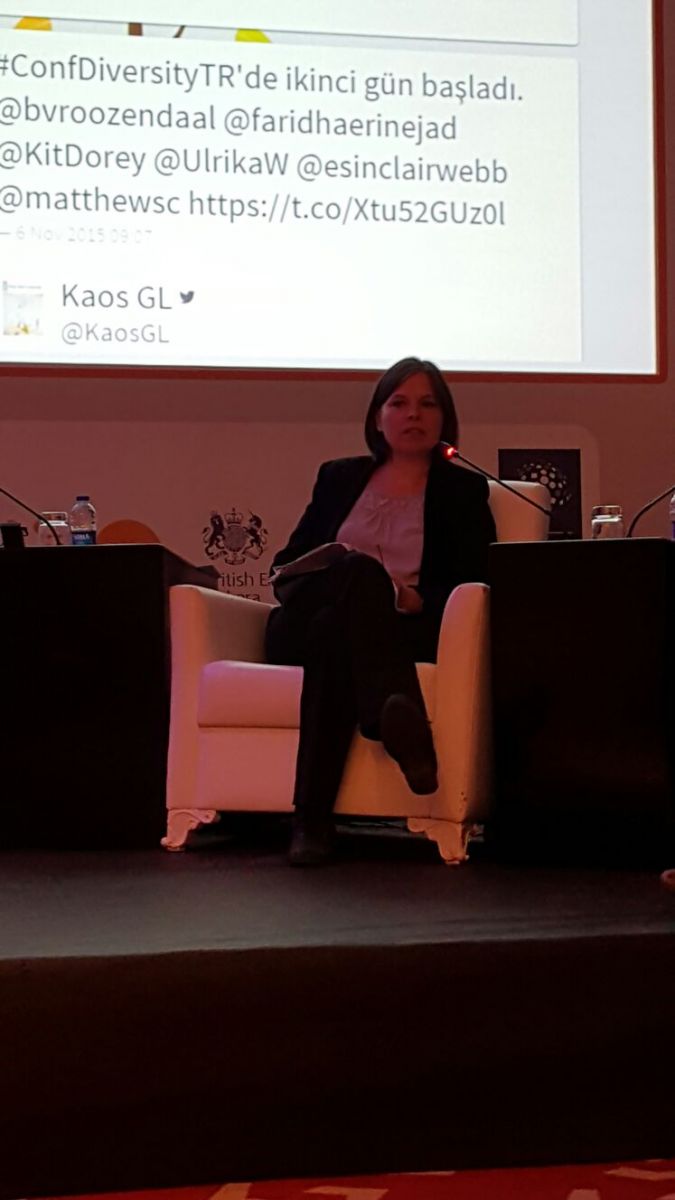
Sinclair: “We are trying to revoke the punishments”
Lastly in the session, Senior Turkey Researcher of Human Rights Watch Emma Sinclair spoke. Sinclair made her speech over her Turkey experience. Sinclair noted the following:
“It’s very important for me to be here today. Kaos GL received an award from Hrant Dink Foundation. I’m very proud of this.”
“I’m here to represent Human Rights Watch. When we were first founded, our name was Helsinki Watch. The purpose of founding this organization was to follow the dirty wars USA has created. But afterwards, units like LGBI Rights, Children’s Rights, Disability Rights were founded. Today, we work in diverse and various fields.”
We are particularly trying to revoke the punishment applications regarding homosexuality which was left in many countries by the colonial period of England. We are focusing on the regions in which such violations are faced intensely. We are supporting the local activists. We no longer claim to determine the problems visiting the fields, we mostly think that it’s needed to support the works of local organizations. We find it important to announce the local level incidents to the world. I believe nowadays, it’s very important for us to remain together with bureaucrats, parliamentarians and diplomats. I know that we can be more creative only when we stand together but these discussions remain among us. And we can more or less guess who will say what. The NGO’s which come closer to the government start to use their languages. These organizations are in no position to act critical because they largely feed from the government. The messages they give are so weak messages. But this not a problem Turkey tries to overcome only, it’s a problem we all try to overcome around the world.”
“Polarization is an important problem”
“Turkey context today is very problematic in terms of civil society because there is too much polarization. It gets more difficult to tell something when one starts to show “You’re either with us or not with us” attitude. Media is under a significant government influence and people are influenced by them. Critical media is tried to be kept out like it’s an enemy camp. As a result of this, there are a couple of methods like closing critical media groups, eliminating every possible influence which might affect the voters of the government. Silencing is not the only problem, they want to eliminate. In time, excluded critical groups start taking a tougher line. The polarization is increasing. LGBTI movement in Turkey achieved a great success. A couple of years ago, its existence was in danger, the associations faced the risk to be closed down. The associations fought well against the effort to create an area out sight under color of creating safe areas for LGBTI’s.”
The last session of the Conference will be about the role of the local administrations. During the session, openly gay Mayor of Poland Robert Biedron, Mayor of Beşiktaş Municipality Murat Hazinedar and Co-Mayor of Akdeniz Municipality Yuksel Mutlu will speak.
Translated by Vahap Karakuş
Tags: life

